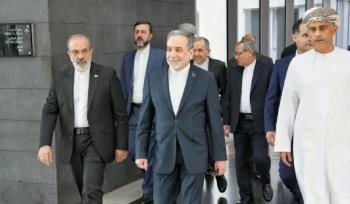Alwaght- Seventh round of Astana peace talks on Syria has begun in Kazakhstan’s capital on Sunday.
Delegations from the Syrian government and armed opposition groups as well as the three guarantor states- Iran, Russia, Turkey- are present at the talks. So are representatives from the United Nations, Jordan, and the United States, according to reports.
Expert-level talks began on Sunday, and the high-level talks will continue until Tuesday.
Another peace process for Syria has been ongoing under the auspices of the UN. Known as the Geneva peace process, it has achieved little in comparison with the Astana process, which began just this year and has already cultivated in the establishment of four deescalation zones which are expected to ease the conflict now in its seventh year.
Meanwhile, there are unconfirmed reports of plans to enforce no-fly zones over these areas.
Iran and Russia are the Syrian government's allies, while Turkey is a supporter of anti-Damascus groups.
Jaberi Ansari, the Iranian chief negotiator, told IRIB before the start of the talks that the first item on the agenda of the negotiations was reviewing the activities of the three guarantor states within the framework of the deescalation zones, particularly in Idlib, in northern Syria.
He said the latest developments and any potential breaches of the deescalation agreement would be discussed.
Other issues to be addressed, he said, are two documents that have humanitarian significance, one on the exchange of captives and bodies, and the other on the clearance of mines in various areas in Syria. He said the Islamic Republic would “seriously” pursue the two issues because of their humanitarian importance and to contain the losses inflicted on the people of Syria over the course of the Syrian conflict.
Jaberi Ansari said some parties had also floated ideas on the political process to be pursued in Syria. He said viewpoints would be exchanged and consultations would be made on those ideas. If an agreement is reached, he said, it will be publicly announced.
Meanwhile, RIA news agency cited Russia’s special envoy for Syria and chief negotiator at the Astana talks as expressing hope that Turkey would help stabilize the situation in Idlib.
“There is a pretty high level of tension there (in Idlib) and there is still a threat of offensives by radical groups deployed there,” Alexander Lavrentiev said. “But we hope that our Turkish partners will in the end fulfil their part of the obligations concerning the Idlib deescalation zone and will stabilize the situation there.”



























